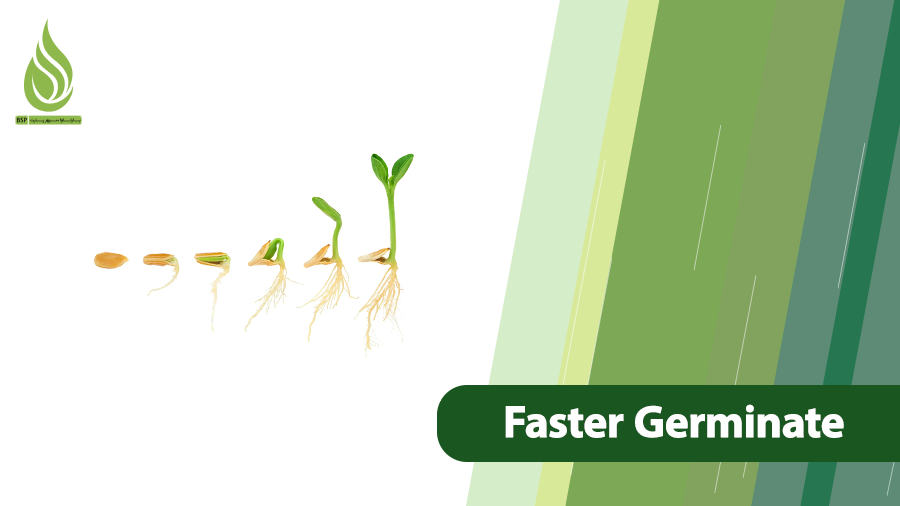
How to Make Seeds Germinate Faster and Stronger?
Every plant’s life begins with the growth of a tiny seed. Many seeds either fail to germinate in poor conditions or grow weakly. To boost agricultural productivity, understanding the key aspects of seed germination is essential. In this article, we share simple, scientific, and practical tips to help seeds germinate faster, stronger, and with a higher success rate. Stick with us!
What is Seed Germination?
Seed germination is a natural process where seeds start to grow and develop under suitable environmental conditions. This critical stage marks the beginning of a plant’s life. During this process, seeds absorb water, swell, and initiate germination. With the right conditions—such as temperature, moisture, and light—the seed’s roots and shoots begin to grow.
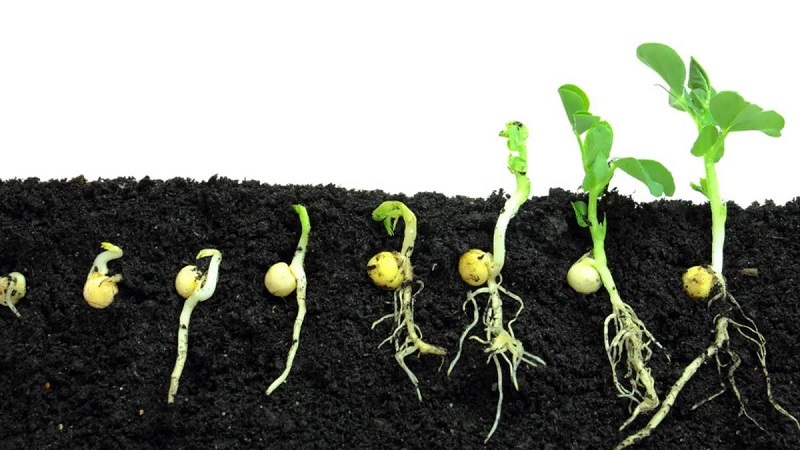
What Factors Affect Healthy Seed Germination?
Several factors influence healthy seed germination. Here are the most important ones:
- Moisture: Seeds need moisture to germinate. Water absorption causes the seed to swell and kickstarts the growth process.
- Light and Temperature: Plants require adequate light to grow, so seeds should be planted in a spot with proper light exposure. The ideal temperature for germination varies. Choose seeds that germinate well in your region’s average temperature. If you’re planting in a greenhouse, ensure the temperature is suitable for growth.
- Oxygen: Seeds need oxygen for respiration. The soil must be permeable to allow oxygen to reach the seeds. To achieve this, till the soil before planting.
- Seed Quality: Fresh, high-quality seeds have a better chance of germinating successfully. Old or low-quality seeds may germinate poorly or not at all.
- Nutrient Supply: Adequate nutrients in the soil promote stronger, healthier plant growth.
- Soil pH: Adjusting soil pH affects nutrient availability. The ideal pH typically ranges between 6 and 7.
Understanding these factors and providing the right conditions will ensure successful and healthy seed germination.
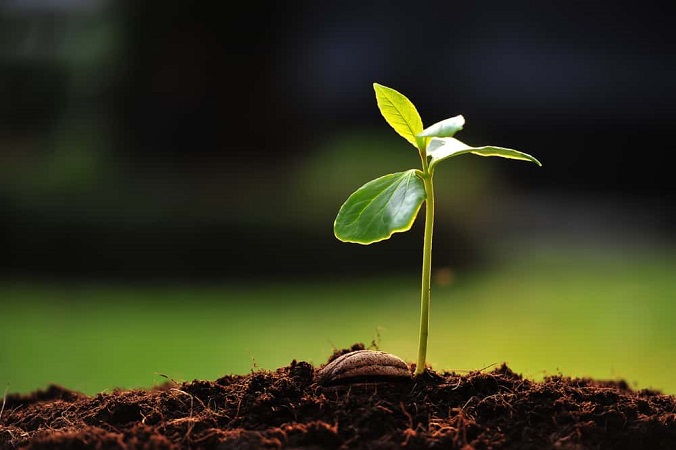
Germination Steps: How to Prepare Seeds?
To ensure successful seed germination, follow these steps:
- Choose the Right Seeds: Always use fresh, high-quality seeds for planting. Old seeds are often weak or unable to germinate. To ensure quality and freshness, purchase seeds from reputable stores.
- Apply Germination-Boosting Techniques: There are techniques and methods to speed up seed germination, which we’ll explain later. Using one or more of these techniques will help you achieve uniform, high-quality sprouts.
- Prepare the Growing Medium: You can plant seeds directly in soil or in trays (for seedlings). Preparing agricultural land for planting is a broad topic that requires research. The soil must meet the necessary conditions for your seeds.
- Plant the Seeds: Sow seeds at the appropriate depth in the soil. The planting depth depends on the type of seed.
- Watering: After planting, gently water the soil to provide sufficient moisture. Water just enough—overwatering can drown and rot seeds, while too little water can prevent germination.
- Transplant to a Larger Space: If you’ve grown seeds in trays, once the sprouts appear and develop adequately, you can transfer them to larger pots or a garden.
- Care for the Seeds: Check soil moisture daily and water as needed. Ensure seeds are in optimal conditions regarding light, temperature, and other factors.
By following these steps, you can prepare seeds effectively and enjoy successful germination.
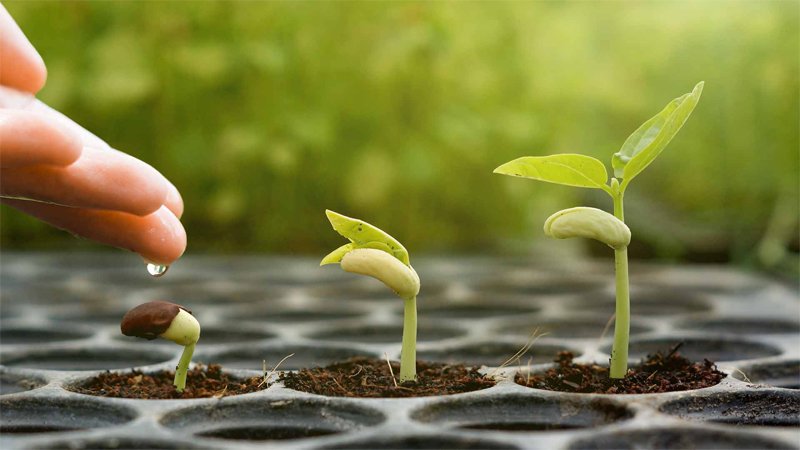
Techniques to Help Seeds Germinate Faster
- Soaking Seeds: Soak seeds in water for 12 to 24 hours before planting. This helps them absorb moisture and begin swelling. Soaking also softens the seed coat, activates enzymes, and speeds up metabolism.
- Seed Scarification: This technique is useful for seeds with hard coats, such as beans, clover, carob, or certain tree seeds. Mechanical scarification involves lightly scratching the seed surface with sandpaper or a knife. Chemical scarification uses a brief soak in diluted sulfuric acid. You must have sufficient knowledge and perform this carefully. The goal is to break the physical barrier of the seed coat, allowing water and oxygen to enter.
- Using Beneficial Bacteria and Fungi: Before planting, coat seeds with solutions containing microorganisms like nitrogen fixing bacteria. This strengthens seed resilience to stress and supports germination in nutrient-poor soils.
- Applying Growth Hormones: Hormones like auxin or gibberellin can accelerate germination. Soak seeds in a diluted solution of these hormones.
- Using Herbal Teas or Extracts: Certain herbal teas, such as thyme or cinnamon, can act as natural germination stimulants. This method is useful for small-scale gardening, like growing vegetables in a backyard or planting flowers in pots.
By applying these techniques, you can speed up seed germination and achieve better results.
Important Tips:
- Before using any method, understand the seed type and its specific needs.
- Some seeds don’t require pre-treatment, while others respond better to a combination of methods.
- Water temperature, duration, and solution concentrations must be precise and controlled.
Key Tips for Caring for Germinated Seeds
Proper care of germinated seeds promotes stronger, healthier plant growth. Water sprouts regularly and on time. Fertilizing sprouts is crucial for faster growth, so create a fertilization schedule based on soil needs and the plant’s growth stage.
Ensure proper aeration, adequate light, and sufficient moisture. Plant seeds with enough spacing between them. If plants are too close and air can’t circulate well, remove weaker sprouts to create optimal conditions for the others.
Regularly check sprouts for signs of pests or diseases and take action if needed. In harsh weather, use protective covers like plastic or fabric to maintain temperature and moisture. By following these tips, you can care for your germinated seeds effectively and support their successful growth.
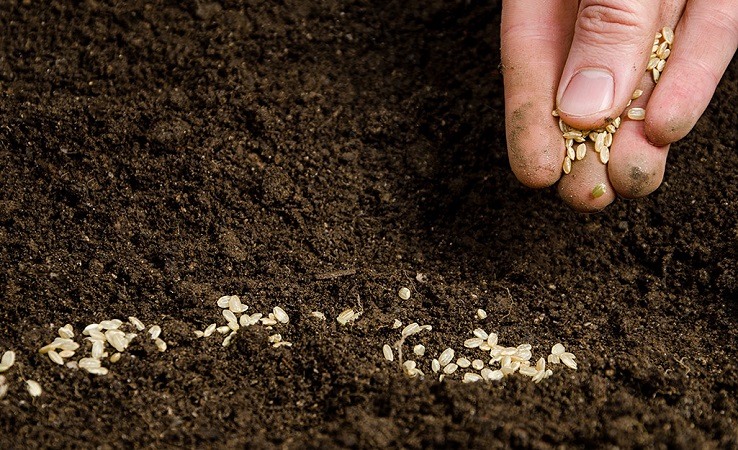
Which Fertilizers Help Seeds Germinate Faster?
To help the seed germinate faster, use fertilizers that support seeds during the early growth stage. The best fertilizers for accelerating seed germination include:
- High-Phosphorus Fertilizers: Phosphorus is a key driver of root growth and seed germination. You can apply these fertilizers during or after planting. One of the best post-planting options is a high-phosphorus NPK fertilizer, such as NPK 10-52-10.
- Micronutrient Fertilizers: Trace elements like zinc (Zn), manganese (Mn), and boron (B) play a vital role in activating germination enzymes. Zinc and iron are especially useful for seeds that are slow to germinate.
- Biofertilizers: Biofertilizers like Azotobacter, Phosphobacteria, and Rhizobium activate soil microorganisms, creating a better root environment for growth. These are highly effective for crops like wheat, chickpeas, lentils, beans, and corn.
- Seaweed Extract: Seaweed extract is a natural growth stimulant containing plant hormones such as cytokinins, gibberellins, and auxins. It boosts germination speed and strength, enhances root development, and increases seedling resilience to stress.
- Humic Acid Fertilizers: Humic acid improves soil structure and nutrient absorption, creating an ideal environment for germination. Use it during soil preparation or with initial watering.
Important Note:
A critical step for successful planting is pre-planting preparation. At the start of the growing season, before sowing seeds, the soil must be thoroughly tilled and prepared. During this stage, initial soil nutrition is vital for successful seed germination.
One key fertilizer for soil preparation is nitrogen-based fertilizers, particularly granulated ammonium sulfate. This fertilizer provides readily absorbable nitrogen, boosting soil microbial activity, stimulating early root growth, and helping the seeds germinate faster. Additionally, its sulfur content supports protein synthesis in newly germinated seedlings, helping them establish better in the soil. Proper and timely use of this fertilizer can significantly impact plant strength and health during early growth stages.
Fertilizers must be applied at the right time to maximize effectiveness. Nitrogen fertilizers are crucial before planting, but high-nitrogen fertilizers should be avoided during germination, as they can burn seeds or sprouts.
Dilute Fertilizers for Seeds!
During germination, seeds are highly sensitive and vulnerable. Using high-concentration chemical fertilizers can burn or dry out seeds, delay germination, and weaken seedlings. High salt levels in the soil around seeds can disrupt water absorption, causing delayed or failed germination. Even if seeds germinate, early contact with strong fertilizers can stunt seedling growth and impair root development.
If using fertilizers during germination, opt for diluted or mild formulations designed for germination. When coating seeds, use only highly diluted solutions and ensure seeds are thoroughly dried before planting.